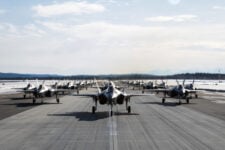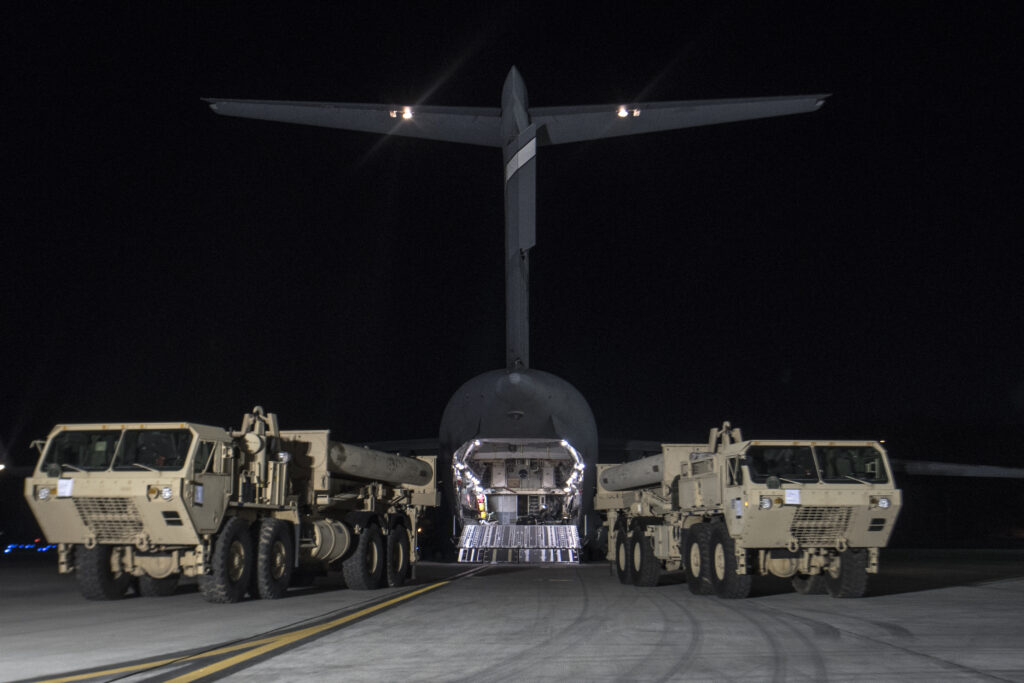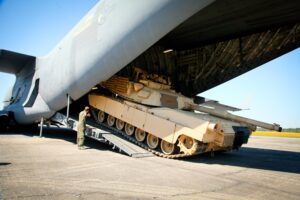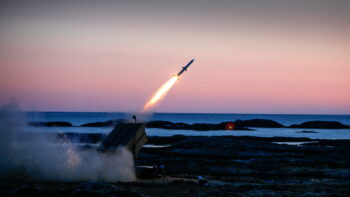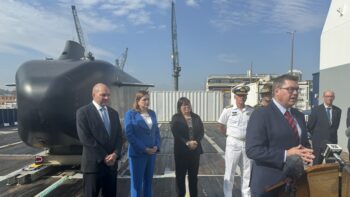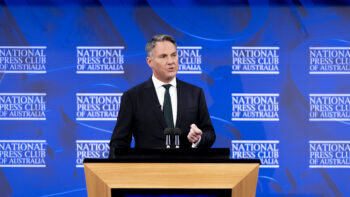WASHINGTON: Even as Congress inches toward cutting off arms sales to Saudi Arabia over the disappearance of Saudi dissident journalist Jamal Khashoggi and Riyadh’s grinding war in Yemen, the United States is preparing to ship $14.5 billion worth of arms to the increasingly embattled kingdom.
Those weapons include “helicopters, tanks, ships, weapons, and training,” a Pentagon spokesman said, confirming they were part of the $110 billion worth of arms the Trump administration pledged to sell Saudi over the next decade. While defense and diplomatic officials declined to put a timetable on the delivery of the equipment — or offer specifics as to what was included — they confirmed Saudi Arabia had signed Letters of Offers and Acceptance to take deliveries in the coming years.
It would be difficult for lawmakers to block the delivery of that equipment, since Congress had earlier signed off on the deals, but experts say that Congress can step in at any time to hold up sales to foreign governments.
There are some clues what might be included in that $14.5 billion.
In 2015, the Obama administration kicked off the $11.2 billion Multi-Mission Surface Combatant program with Saudi Arabia, which consists of four ships modeled on the Freedom variant of the U.S. Navy’s Littoral Combat Ship.
Since March, Lockheed Martin has been awarded over $930 million in contracts to “begin the detailed design and planning for construction” of the four ships, which feature the Mk41 missile launching system derived from the Aegis system used by US and allied navies, and boasts a range of 5,000 nautical miles.
In August 2016 — again under the Obama administration — Saudi initially agreed to a $1.5 billion deal for 115 M1A2S tanks made by General Dynamics Corp.
But not everything is coming together as planned. One of the biggest items on the May 2017 list — the $15 billion letter of intent to buy the THAAD anti-missile system — has run into trouble as Saudi officials have let the Sept. 30 deadline to agree to the purchase slip by, as the government considers buying the Russian S-400 system instead.
The THAAD negotiation began with an astonishing episode in which Jared Kushner, the presidential son-in-law with an expansive and elastic portfolio within the administration, called Lockheed Martin CEO Marillyn Hewson during a meeting with the Saudis to ask her to cut the price on the system, which she eventually did by some 20 percent.
The passing of the deadline means the initial terms of the agreement will have to be renegotiated, and the price reset.
That kind of personal deal making has done little to impress Congress, which is seeing a growing number of Republican and Democratic lawmakers voicing their objections to Saudi conduct in its fight against Houthi rebels in Yemen, where at least 6,600 civilians have been killed since 2015, most by Saudi-led coalition air strikes, according to the U.N.’s human rights office. The Khashoggi disappearance, and reports he has been murdered by Saudi agents, have only made matters worse.
Republican Foreign Relations Committee chairman Bob Corker told reporters Thursday he had recently warned an unnamed defense contractor to stay away from any new deals with the Saudis. “I shared with him before this happened, please do not push to have any arms sales brought up right now because they will not pass. It will not happen. With [the Khashoggi investigation] I can assure it won’t happen for a while,” Corker said.
There are currently no new arms sales in front of Congress that lawmakers can object to, but there are four current holds on sales.
It is unclear what the four holds entail. Sen. Robert Menendez, the top Foreign Relations committee Democrat, has for months blocked the sale of tens of thousands of Raytheon-made precision guided munitions kits due to concerns over US support for the Saudi war in Yemen. Pentagon officials say the United States provides aerial refueling of Saudi and Emirati jets and training of pilots, but American-made munitions are involved in many of the strikes.
Asked about reports that Saudi agents murdered Khashoggi, Trump said Thursday, “we don’t like it even a little bit,” but “as to whether or not we should stop $110 billion from being spent in this country, knowing they have four or five alternatives, two of them very good alternatives, that would not be acceptable to me.”
While the Saudis have said they’re looking at the Russian air defense system, doubts remain over whether they would go through with it, or look to Russia and China for weaponry should Washington balk.
“It’s more likely that the Saudis would look to the UK or Spain” in the event of Congress clamping down, said Rachel Stohl, director of the Conventional Defense Program at the Stimson Center in Washington. Since the Saudi military has been buying planes, tanks, and munitions from NATO member countries for so many years, to all of a sudden change gears to buying from the East would wreak havoc on its military, she added.
Last month, Secretary of State Mike Pompeo issued a statement certifying that the Kingdom is “undertaking demonstrable actions to reduce the risk of harm to civilians and civilian infrastructure resulting from military operations of these governments,” in an effort to deflect criticism from Congress and human rights groups.
The certification has itself sparked Congressional pushback. On Wednesday, a bipartisan group of lawmakers led by Senate Foreign Relations Committee Republican Todd Young and Democrat Jeanne Shaheen sent a letter to Pompeo expressing “serious doubt” over the certification.
The senators pointed to the “dramatic increase in civilian casualties and deaths from Saudi-led coalition airstrikes over the last few months,” including the “death of dozens of children in successive Saudi airstrikes in August.”
Worryingly for the Trump administration, in June 2017, 47 Senators voted to block the sale of roughly $500 million in precision-guided munitions to Saudi Arabia, just missing achieving a majority.
Earlier this week, heads of the Senate Foreign Relations Committee and 18 other senators delivered a letter to the White House warning of more sanctions against Riyadh if it was found Saudi agents killed the dissident Saudi journalist.
Committee chairman Bob Corker and ranking member Bob Menendez called for a probe whether Saudi Arabia was responsible for “an extrajudicial killing, torture, or other gross violation of internationally recognized human rights against an individual exercising freedom of expression” under the Global Magnitsky Act.
The lawmakers gave the administration 120 days to report back.
Norway’s air defense priorities: Volume first, then long-range capabilities
“We need to increase spending in simple systems that we need a huge volume of that can, basically, counter very low-tech drones that could pose a threat,” Norway’s top officer told Breaking Defense, “so we don’t end up using the most sophisticated missile systems against something that is very cheap to buy.”













